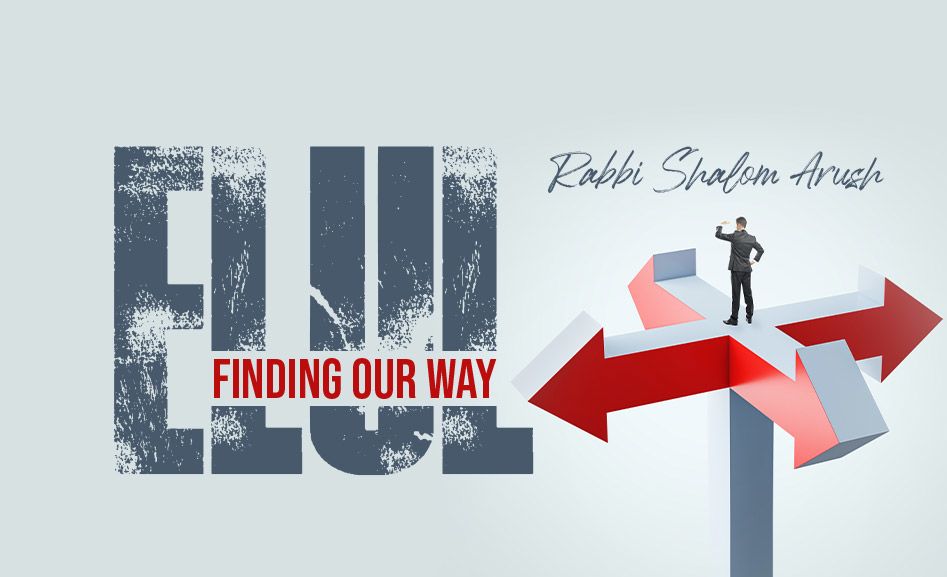
Focused on Hashem
When a person is focused on Hashem, he avoids countless transgressions such as jealousy, coveting, hate, competing with others, revenge, evil speech and many more...

As soon as he became aware of Hashem, our forefather Abraham never opened his eyes and looked at anything unless it was Hashem’s will. Even if a person is in a place where there are no women, opening his eyes is liable to lead his thoughts away from Hashem. As such, King David made sure to maintain his focus on Hashem, so that he can always say, “My eyes are always to Hashem” (Psalm 25:15). When a person is focused on Hashem, he avoids countless transgressions such as jealousy, coveting, hate, competing with others, revenge, evil speech and many more. Since he’s looking at Hashem, he’s not looking at others; he harbors no feelings of, “This one did this to me and that one did that to me” – he sees Hashem only, and he knows ein od milvado, there is no one but Hashem. Such a person knows that Hashem gives him whatever he needs whenever he needs, so there’s no point in focusing on anyone else. When he’s clinging to Hashem, there is truly no bad in the world.
We can now understand how many great tzaddikim never lifted their eyes beyond the six-foot radius of wherever they were. They guarded their eyes even in a closed room, not only to avoid seeing anything unsightly, but to maintain their focus on Hashem. As soon as a person sees a certain image, that image  becomes the focal point of his thoughts. And, one thought triggers many more thoughts, so who knows where the mind can go from looking at one image.
becomes the focal point of his thoughts. And, one thought triggers many more thoughts, so who knows where the mind can go from looking at one image.
If a person sees things that are outright immodest, lewd and forbidden, then he activates an entire chain reaction of unwholesome thoughts, desires and lust. He must therefore do a double teshuva, both for what he should not have been looking at and for losing his focus on Hashem. Such a person must ask himself: where was I? How did I let myself get tripped up? Why wasn’t I clinging to Hashem?
We must learn the dynamics of guarding our eyes in order to begin to understand where we are in the world. To a lot of people, emuna is like the Shabbat candlesticks – something that’s taken off the shelf and displayed once a week. But for our forefather Abraham, emuna meant clinging to Hashem and not forgetting Him for a single moment. He therefore never opened his eyes unless doing Hashem’s will required him to, for he knew that if he did, his mind would be redirected to other things.
My teacher Rabbi Yehoshua Cohen shlit’a is one of the world’s most phenomenal Torah scholars. He knows the entire Gemara, Rashi, Tosephot, and many more holy books completely by heart. His concentration is formidable, and so is his dedication to guarding his eyes, which are constantly focused on the particular volume he is learning. Rabbi Cohen reminisces, “When I was a student in Yeshiva, I knew the boy that was sitting next to me, but I didn’t know the boy that was sitting behind him.” He was so engrossed in his learning, that he was totally impervious to anything outside of his immediate personal space. Rabbi Cohen’s eyes never wandered, nor did his mind. His total focus, concentration, and dedication to his Torah studies made him the prodigious Torah scholar that he is today. It didn’t happen by accident.
A person who decides to guard his eyes, for he desires to cling to Hashem like our forefather Abraham did, should make a reckoning about every single time he opens his eyes. Maybe this sounds exaggerated and unreasonable. But imagine that every breach in guarding our eyes is like being exposed to enemy gunfire. Seeing a forbidden sight would be tantamount to a bullet in the head (and intrinsically, it’s worse!). Who would be foolish enough to risk their soul and their eyes? So, we must ask ourselves before we open our eyes, does Hashem want me to open my eyes at this particular moment, or in this particular circumstance? This type of self-assessment and awareness is highly conducive to helping us learn to guard our eyes properly, may we all so merit, amen!






